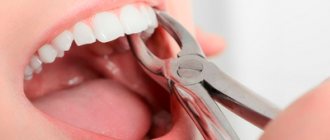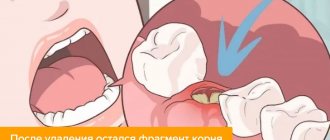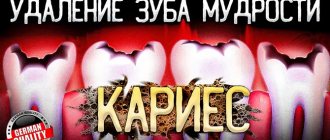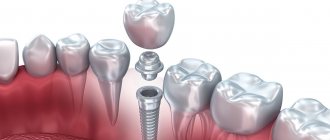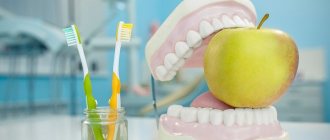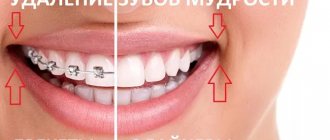Quite a lot of patients who smoke are interested in the question of whether it is possible to start smoking after tooth extraction . Most often, wisdom tooth removal requires creating the right conditions for rapid wound healing. Proper oral care during this period will prevent the exacerbation of pain and the development of various complications. Many patients experience real stress during the procedure and consider a cigarette to help calm their nerves. You can smoke after tooth extraction, however, it is important to follow several rules that will minimize the likelihood of developing an exacerbation.
The effect of tobacco smoke on implants
To understand how smoking and dental implantation are combined, you need to find out what the negative effects of nicotine and tobacco tar on the oral cavity are.
Firstly, every time smokers inhale tobacco smoke through the mouth, periodontal tissues find themselves “in the line of fire”, since they are exposed to all the harmful substances at once. The smoking process itself burns the mucous membrane, thereby striking the beneficial microflora and provoking the development of inflammation.
Secondly, nicotine and tobacco tars have not only a local, but also a systemic toxic effect, as a result of which the smoker’s tissues are less well supplied with oxygen and nutrients.
If the implants themselves are made of reliable material and deeply fixed, tobacco smoke will not destroy them. However, it does not allow the body to cope with the implantation of artificial teeth into the bone and recovery after surgery.
Due to problems with regeneration, smokers are limited in their choice of surgery. For example, they cannot do one-step or one-stage dental implantation. In any, even the most virtuosic performance, surgery is stressful for the body. Violation of the integrity of the gums, insertion of foreign objects into the bone - all this requires time and effort to recover. Smoking during implantation interferes with the healing process, it does not even allow maintaining hygiene at the proper level. After all, if hot smoke regularly enters the mouth, tobacco tar forms a plaque, and the mucous membrane is constantly dry, then harmful bacteria multiply in such conditions almost unhindered.
The systemic effect of nicotine on the body also interferes with recovery. Even high-quality orthopedic products have little chance of healing with damaged bone in a short time, given its poor blood supply and weakened immunity. And heavy smokers almost always have these problems.
The installation of classical implants is also excluded due to the osseointegration zone close to the surface. If the patient does not give up the bad habit, then regular burns of the gums and the proliferation of pathogenic bacteria on the mucous membrane will soon lead to peri-implantitis. This is the name for inflammation of the bone at the site of implantation of the artificial root until it softens. Therefore, smoking during implantation often leads to rejection, and the destructive process itself is quite painful.
Another problem is that the patient may require osteoplasty before implantation. This usually happens when the bone of the upper jaw under the maxillary sinus becomes thinner—in this case, a sinus lift is performed. But in other places, it is often necessary to build up bone tissue before inserting a titanium rod into it, and in a smoking patient there is a high probability of rejection of the transplanted bone material.
Summary -
- It is very good if you choose the right type of implant with an ultra-hydrophilic surface. Ideally, even with a surface on which phosphorus molecules or fluorine ions are applied.
- It is very good if you have chosen the correct surgical technique for installing the implant. We are talking about a two-stage classical implantation technique when installing a classic (crestal) type of implant, or about a basal implantation technique.
- It is very good if you reduce the frequency of nicotine consumption several weeks before the operation and for 5-8 weeks after it, and even better, do not smoke at all during this time.
Important: But that's not all you need to know.
You must understand that if you continue to smoke after the implant has been implanted into the bone, then you will encounter the problem of accelerated bone atrophy around the neck of the implant (typical for classic-type implants). This means that over time your gum height will decrease and the metal surface of the implant will be exposed (Fig. 9). The latter circumstance will make the aesthetics almost unacceptable if we are talking about the anterior group of teeth and at the same time you have a high smile (with exposure of the gingival margin). We hope that our article: Smoking and implantation was useful to you!
Sources:
1. Add. professional
, 2. Personal experience of a dental surgeon (implantologist), 3. American Academy of Implant Dentistry (AAID), 4. National Library of Medicine (USA), 5. “Complications during dental implantation” (A.V. Vasiliev), 6 The National Center for Biotechnology Information (USA).
Possibility of implantation in a smoking patient
Smokers have a chance of successful implantation under the following conditions:
- Choosing the appropriate type of implants. To avoid the development of inflammation in the area of osseointegration, it is necessary that this area is as deep as possible. The deepest fixation in the jaw is provided by basal implants, which are implanted not into the upper part, but into the lower layer of the jawbone. This type of implant is also most suitable for thinning bone tissue.
- Strict smoking cessation for a certain period of time before and after surgery. Moreover, from any type of smoking, including electronic cigarettes.
- Compliance with all doctor's prescriptions. The patient will have to not only carefully monitor oral hygiene, but also follow other recommendations. That is, take prescribed antibiotics in the prescribed course, antihistamines, specific vitamins to support immunity, etc.
How to eliminate pain without harming your health
Pain and swelling in the first few days after surgery is normal. To relieve pain, you can take painkillers. These are non-narcotic analgesics, but the specific drug is prescribed by the doctor, taking into account the clinical picture and individual characteristics of the patient. Prescribing painkillers for yourself is strictly prohibited.
Additionally, you can apply a cold compress to your cheek - a heating pad with cold water or ice. But you can do this for no more than 10-15 minutes with a break of 40 minutes. You cannot hold the compress longer, so as not to provoke hypothermia and inflammation.
Rinsing the mouth with a special solution will help relieve or reduce pain; which drug to use should be checked with the specialist who performed the implantation.
To speed up the healing process, you can apply a healing ointment to the operated area.
The use of herbal infusions and decoctions is allowed, but only in consultation with the doctor, since individual components can cause allergies and other reactions. The compositions are used for rinsing the mouth along with antiseptic solutions.
Is it possible to smoke before implantation?
Before dental implantation, you should not smoke for a month to give the mucous membrane the opportunity to recover from burns and dryness and improve blood circulation. At this time, it is recommended to lead a healthy lifestyle, that is, it is advisable not to drink alcohol, eat right and take vitamins to strengthen the immune system. In addition, you need to carefully monitor your oral hygiene.
A month is the minimum period of abstinence from smoking before surgery. Ideally, the longer the better.
How to speed up the healing of a hole
Dentists always give the patient individual recommendations that must be followed. But there are general rules that apply to all patients:
- Do not smoke for at least two to three hours.
- Promptly remove the tampon soaked in antiseptic from the postoperative wound. If you forget to do this, the fabric will become a suitable breeding ground for bacteria.
- Do not touch the blood clot covering the wound. It cannot be picked or felt. The speed of recovery directly depends on the state of the clot.
- When rinsing, do not make intense movements that will help wash out the clot. You just need to put the medicinal solution in your mouth and carefully hold it on the side of the extracted tooth.
- Do not apply medications to the affected area that have not been prescribed by a doctor. Such amateur activities can lead to dangerous complications.
- In the first three days after extraction, do not take a hot bath or steam in a bathhouse or sauna.
- Do not eat until the anesthesia wears off. Otherwise, you may bite the tissue of your cheek or lip.
- Take only those medications prescribed by your dentist. Sometimes doctors decide to prescribe antibiotics - they must be taken strictly according to the specified regimen.
How the regeneration process will proceed depends not only on the actions of the dental surgeon, but also on the behavior of the patient. Remember this!
Is it possible to smoke after dental implantation? When is it possible?
The minimum period for quitting smoking after dental implantation is 1.5–2 months. It is necessary to endure it so that the wounds in the mouth heal and the gums tighten, tightly grasping the implants.
The most correct decision would be to quit smoking completely, because due to this habit the patient’s blood vessels, bones and mucous membranes will soon be “under attack” again. However, the most important thing is to maintain at least a two-month rehabilitation period after surgery to reduce the risk of peri-implantitis.
This rule also applies to users of electronic cigarettes, the vapor from which also contains nicotine and burns periodontal tissue when inhaled.
Teeth whitening methods
There are several whitening methods:
- Mechanical cleaning Air-flow. It has weak whitening compared to other methods, but it also has the safest effect. Includes high pressure water, air and sodium bicarbonate abrasive. The narrow tip of the sandblaster produces a thin stream with strong pressure, through which the dentist cleans plaque from each tooth. If tartar is present, the patient is first removed with ultrasound. As a result, the enamel is cleared of impurities and becomes lighter, but the yellow pigment does not discolor. However, increased tooth sensitivity after the procedure goes away faster than with intensive whitening methods.
- Photobleaching. Application of a teeth whitening gel to the enamel, which does not begin to act until high-intensity light rays are directed at it. Under the influence of light, the composition with hydrogen peroxide and carbamide oxidizes and penetrates deeper into hard tissues, discoloring them. It is preferable to use an LED or halogen lamp instead of an ultraviolet lamp, as they emit cold light and heat should be avoided during oxidation. A course of procedures can whiten by 10, and in some cases, by 12 tones.
- Laser. Just like with photobleaching, a gel based on hydrogen peroxide is applied to the enamel, and then its properties are activated. Only in this case, the catalyst for the chemical reaction is not intense light, but a laser beam, which the doctor directs one at a time to each tooth being whitened.
- Chemical. It differs in that a stream of light or laser is not required to oxidize the bleaching composition. The reaction occurs gradually, without additional exposure. The gel is applied to the teeth and left for a while, and then removed. In this way, teeth can become whiter by 5–7 shades.
- Endobleaching. It is used in cases where the crown of the tooth darkens from the inside. Most often this happens after injury (due to hemorrhage into the pulp), due to death or removal of the nerve, due to a reaction to the filling material. Then a whitening compound is injected into the crown through a drilled hole, and the whole thing is closed with a filling. This operation is not performed on “living” teeth, only on pulpless ones.
Modern dentistry can allow a patient to get the smile of their dreams in just an hour. But you should not think that eliminating yellowness acquired as a result of smoking, drinking strong coffee and chocolate in large quantities means that after teeth whitening you can do the same thing with the same success. After treatment with bleaching compounds, enamel becomes more sensitive and vulnerable, and it requires time to recover.
In fact, the surface of the tooth is not perfectly smooth: its microrelief includes, in addition to smooth areas, hills and depressions. After bleaching, the enamel is deprived of its protein film (pellicles) and its upper uneven layer is exposed, to which new contaminants quickly “attach.” And whitening sessions are not recommended to be done frequently, as this causes the enamel to demineralize, becoming vulnerable to the formation of tartar and even cracks.
Whitening affects not only the surface of the tooth, but also the next layer of its structure. When cleaning the enamel alone, you won’t get a Hollywood smile, because yellowish dentin shines through its translucent layer. When the whitening gel oxidizes, the permeability of the enamel increases, and the composition penetrates deeper, discoloring the dentin and affecting the nerve endings located in it. Because of this, teeth react especially sharply to cold, hot liquid, acid and other irritants.
Therefore, one of the conditions for successful rehabilitation is diet. The white diet, also known as colorless, involves excluding from the diet foods and drinks that contain acid and coloring matter.
Is it possible to smoke after implants have been implanted?
“You can, just be careful,” but it’s better not to smoke. To the facts already listed about the harmful effects of nicotine and tobacco tar on the immune system, blood circulation and mucous membrane, one more argument can be added - smoking after implantation accelerates the loss of bone tissue around the implants.
To be fair, it is worth noting that non-smokers’ bone loss also decreases, but two times slower than that of nicotine addicts. If the former lose a maximum of 0.1 mm per year, the latter lose 0.2 mm. These numbers may seem insignificant, but in fact the difference is significant. In any case, doctors reduce the guarantee for the operation of implants for smokers by 5–10 years.
When should you cancel your visit?
If circumstances arise that prevent you from visiting the dentist at the scheduled time, you can cancel the visit and reschedule it for a later date. It is better to inform the doctor or administrator about this as soon as possible so that it is easier for them to adjust the patient’s appointment schedule.
Cancel your visit if:
- you become ill with ARVI, influenza, or any other infectious or viral disease that may be contagious or interfere with treatment;
- your herpes has worsened;
- the nose is very stuffy (for example, due to allergies), and the stuffiness is not relieved with medication;
- with any increase in body temperature;
- when you feel unwell associated with an increase or decrease in blood pressure.
Risk
The implantation of foreign structures into the tissues of the human body is a huge stress. At this time, you need to see a doctor and follow his recommendations. The human body is such a complex mechanism that it can reject an implant even for no apparent reason, not to mention clear contraindications. One of them is the use of tobacco products. People with such a bad habit find it difficult to endure even such a simple intervention as tooth extraction. They develop dry socket syndrome, which causes fever and pain in the operated area. Speaking of more serious interventions, the consequences will also be more significant. The risk of dental implant failure in a smoker is many times higher. Moreover, a pattern was derived that relates the number of products used and the likelihood of problems with engraftment. Smokers are 2 times more likely to experience rejection than people who do not have this habit. However, do not be discouraged. Tobacco use and dental implants are not completely mutually exclusive.
Smoking before and after the procedure
It should be honestly noted that smoking significantly reduces human immunity. In people who have had this bad habit for many years, fusion of the implant with the bone may not occur at all. The 3-4 weeks before surgery greatly influence the rehabilitation process. Try to keep smoking to a minimum during this period.
In the case of implant engraftment, the same first 3-4 weeks after the intervention are also of great importance. It is during this period that many smokers develop peri-implantitis. Remember that nicotine during this period is dangerous because it slows down regeneration and the process of osseointegration.
What do you need to know before going to the dentist?
Visiting the dentist is a fear for many. To make your visit to the doctor as effective as possible and to be fully prepared, you need to remember some rules. Specialists at the Happy Smile clinic tell you in detail what you need to know before going to the dentist.
There's no need to be afraid
Modern dentistry has methods of pain relief that reduce discomfort and pain during treatment, prosthetics, and even tooth extraction to zero. Some people are afraid of injections, but even here there is practically no pain, since doctors use the following methods:
- injections are performed with special syringes with thin and sharp needles;
- the injection site is pre-treated with a spray or gel with an anesthetic;
- for easier penetration of the needle, the mucous membrane is dried;
- the medicine is administered gradually, slowly, so that it accumulates at the site of inflammation.
Lidocaine and novocaine in modern dental clinics are replaced by new generation drugs with a more powerful effect, so the patient does not feel anything even with complex molar removal.
When choosing dentistry you need to consider:
- availability of high-quality multi-profile equipment;
- range of services provided;
- professionalism, skill of specialists.
Dentistry Happy Smile is one of the leading dental clinics, where services are provided for treatment, whitening, prosthetics, implantation, and tooth extraction. The medical center employs highly specialized dentists who regularly improve their skills and provide services at the highest level.
Is it possible to eat before going to the clinic?
If the treatment will take place under anesthesia, it is necessary to have a snack. This is due to several reasons:
- Less saliva is produced. Dry mucous membranes are necessary for fillings and diagnosing certain diseases. If a person is hungry, he is provided with increased salivation;
- Immediately after therapy you cannot eat for 1-2 hours, so it is advisable to eat before the procedure so as not to feel hungry later.
Excessive consumption of food is also not advisable before taking it, otherwise nausea and vomiting may occur, especially in people with a sensitive reflex.
Eating is strictly prohibited if the treatment is carried out under anesthesia. The anesthesiologist should tell you detailed rules for preparing for this procedure.
Can I drink alcohol?
Some people believe that if you drink a little alcohol before going to the dentist, dental treatment will not be so scary. In fact, drinking alcohol is strictly prohibited, at least 24 hours before a dental procedure. It can block the action of the pain medication, making treatment painful or even impossible.
It is also worth remembering that the dentist has every right to refuse to treat a patient who is intoxicated.
What should you not do before going to the dentist?
- Try to drown out bad breath with mints, chewing gum and other methods. Odor is one of the diagnostic criteria that in some cases helps the dentist make the correct diagnosis;
- Taking painkillers. If you have to visit a doctor because of acute pain, you should stop taking any painkillers a few hours before leaving home. For a dentist, pain response is important. It evaluates the severity, intensity, and speed of onset of pain when exposed to irritants, and tablets significantly complicate diagnosis.
- Conceal information from your doctor about taking medications, especially blood thinners. Otherwise, there is a high risk of bleeding and other complications. Sometimes the dentist recommends stopping such medications for a while and scheduling a visit for another time.
- Hide information about the presence of an allergic reaction, existing diseases of internal organs, hereditary pathologies, the presence of menstruation, menopause. All this may affect further therapy.
What should you take with you?
You must come to any medical institution with a passport or medical insurance. It is advisable to have SNILS with you in paper or electronic form. Also, be sure to take with you the results of x-rays, previous studies, if they were not carried out in this clinic, conclusions and recommendations of the doctor.
You need to plan your appointment in advance
A trip to the dentist should be planned in advance, otherwise, if the doctor does not have a free window, the patient may simply not be seen. The exception is cases with acute pain. In this case, the doctor cannot refuse an examination.
The duration of the visit depends on the complexity of the procedure. A regular examination lasts on average 15-20 minutes, professional cleaning up to 1 hour, treatment can take more than 60 minutes. It is better to arrive early in order to have time to complete all the necessary documents. If a patient is late or cannot come to the clinic, this should be reported.
When should you not go to the dentist?
It is better to postpone going to the dentist in the following cases:
- the presence of herpes, elevated body temperature;
- viral diseases of the respiratory tract;
- period of menstruation in women;
- nasal congestion or severe runny nose;
- excessive drinking on the eve of the visit;
- bad feeling.
In the office, you should calm down, answer all questions clearly and truthfully, and follow all the instructions of the attending physician. Only in this case will a trip to the dental center be easy and painless.
